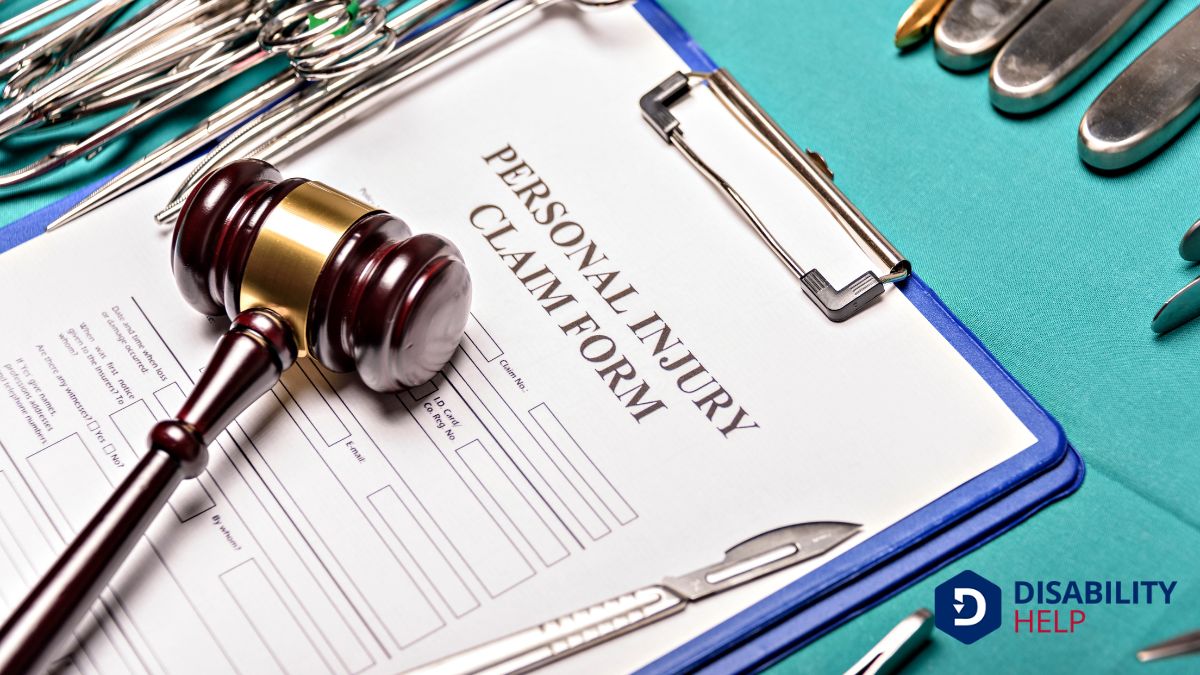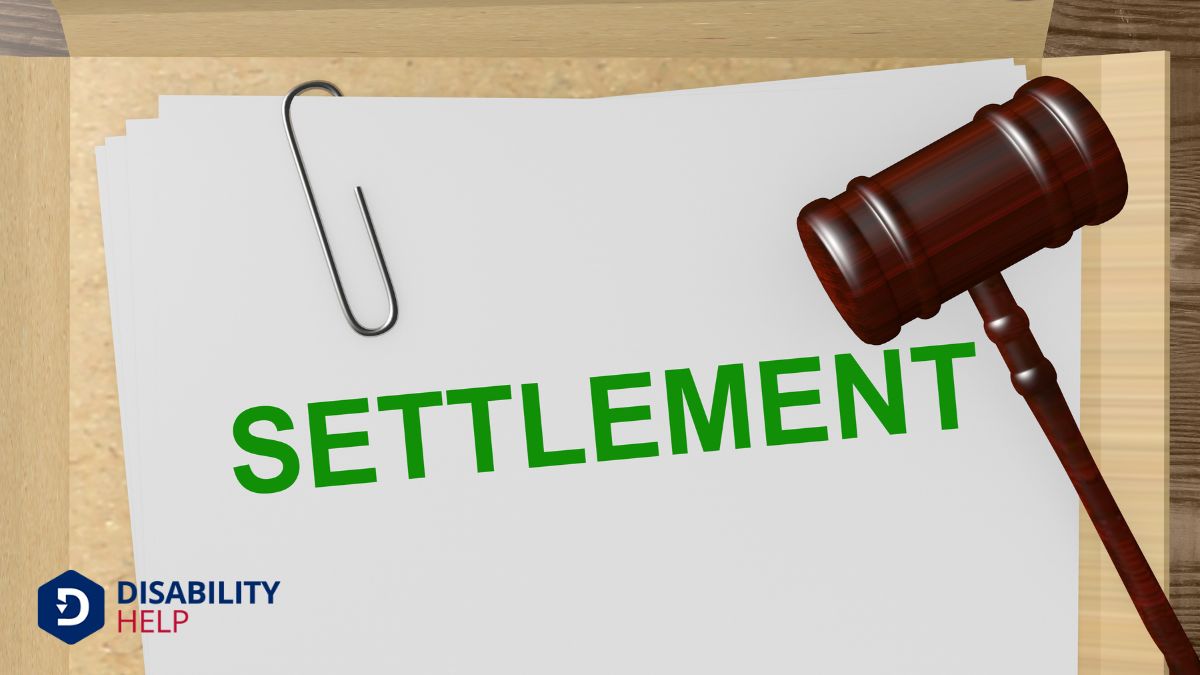When we receive a personal injury settlement, it's natural to assume those funds are safe and solely ours. However, certain legal obligations can put that assumption at risk. Child support arrears, tax liens, or other debts might lead to garnishment. But what exactly does garnishment entail, and how can we protect our hard-earned settlements from being seized? Let's explore the intricacies and potential pitfalls that could affect our financial peace of mind.
Key Takeaways
- Personal injury settlements can be garnished for child support arrears and federal tax liens.
- Court-ordered restitution may lead to garnishment of settlement funds.
- State laws and federal protections often determine garnishment eligibility and limitations.
- Consulting local attorneys helps clarify garnishment risks and legal obligations.
- Proactively addressing obligations can prevent the garnishment of settlement funds.
Understanding Personal Injury Settlements

Personal injury settlements are agreements reached between the injured party and the responsible party to compensate for damages without going to trial. We often seek these settlements to avoid lengthy and costly court proceedings.
They typically cover medical expenses, lost wages, and pain and suffering. By negotiating a fair settlement, we aim to receive compensation that reflects the extent of our injuries and their impact on our lives.
It's essential to understand the terms of a settlement. We need to guarantee they address all our needs and future implications.
This process requires clear communication and sometimes the guidance of a legal expert. By understanding our settlement thoroughly, we can confidently move forward, knowing we've secured the necessary financial support.
Legal Protections for Settlement Funds
Let's explore the vital protections in place for settlement funds.
State-specific exemption laws can shield these funds from creditors, while federal bankruptcy protections offer another layer of security.
As we navigate these legal waters, understanding creditor claim limitations will help us safeguard our financial recovery.
State-Specific Exemption Laws
Although maneuvering personal injury settlements can be complex, understanding state-specific exemption laws is essential for protecting your settlement funds. Each state has its own rules regarding what can and can't be garnished.
These laws determine whether creditors can access your settlement. In some states, settlement funds are entirely protected, while others may allow limited garnishment depending on the type of debt or creditor involved.
It's vital for us to research our state's specific laws to know our rights and safeguards. Consulting with a local attorney can provide clarity, ensuring we maximize protection and compliance with state regulations.
Federal Bankruptcy Protections
How do federal bankruptcy protections impact our personal injury settlement funds? When we file for bankruptcy, federal law offers us certain safeguards.
These protections can help shield our settlement funds from creditors. In a bankruptcy proceeding, the court assesses our assets and liabilities to determine which debts we can discharge.
Fortunately, personal injury settlements might be protected under federal exemptions, meaning they could remain untouched by creditors during this process.
It’s vital to understand that these protections vary by case specifics and the type of bankruptcy filed. For instance, Chapter 7 and Chapter 13 bankruptcies handle asset exemptions differently.
Knowing these distinctions helps us navigate bankruptcy while safeguarding our settlement funds. Consulting a bankruptcy attorney guarantees we make informed decisions.
Creditor Claim Limitations
When dealing with personal injury settlements, understanding creditor claim limitations is essential for protecting our funds. These limitations act as a shield, safeguarding our settlement money from most creditor claims. Typically, creditors can’t touch our settlement funds because they’re intended to compensate for injury-related losses, not debts.
However, there are exceptions. If we owe child or spousal support, those obligations might still affect our settlement as courts prioritize these essential payments.
To guarantee our funds remain secure, we should familiarize ourselves with state-specific laws, as they can vary. Seeking legal advice can be invaluable. An attorney can help us navigate these complexities and guarantee that our settlement is used for its intended purpose: aiding our recovery and covering the costs of our injuries.
Circumstances That May Lead to Garnishment
Even if you've secured a personal injury settlement, certain circumstances might lead to its garnishment.
Understanding these situations can help us navigate potential challenges. Generally, garnishment happens when we're facing legal obligations that require us to use settlement funds.
Here are some common scenarios:
- Child Support Arrears: Unpaid child support can trigger garnishment of your settlement to guarantee the child's welfare.
- Federal Tax Liens: If we owe back taxes, the IRS may garnish our settlement to satisfy tax debts.
- Court-Ordered Restitution: Settlements might be garnished if there's a legal order requiring us to compensate someone for damages.
The Role of Creditors and Debts
When we consider the role of creditors and debts in personal injury settlements, we need to understand the creditor claims process and how different types of debt can impact these settlements.
It's essential for us to be aware of settlement protection laws that might shield our compensation from garnishment.
Creditor Claims Process
While managing the creditor claims process, understanding the role of creditors and debts in personal injury settlements is vital.
We must recognize that creditors may have a legal right to claim portions of a settlement to satisfy debts. This process can be intricate, but knowing the steps helps us navigate it effectively.
- Notification: Creditors need to be informed about the settlement. This step guarantees all parties are aware and can prepare their claims.
- Verification: We verify the legitimacy of each claim. Accurate and thorough verification is key to ascertaining only valid debts are addressed.
- Negotiation: Engaging with creditors to negotiate terms can potentially reduce the amount taken from the settlement. This negotiation can lead to favorable outcomes for us.
Debt Types Impact
Understanding the impact of different debt types on personal injury settlements is vital for managing the role of creditors and debts. When we face various debts, it’s important to know how each type affects our settlement funds.
Some debts, like taxes or child support, may have precedence and can directly influence how much of our settlement is protected or garnished. Other debts, such as credit card or medical debts, mightn't have the same immediate impact but could still pose a threat if creditors pursue aggressive collection actions.
Settlement Protection Laws
Although maneuvering settlement protection laws can be complex; it’s imperative to understand how these laws safeguard our personal injury settlements from certain creditors.
These laws differ by state but often provide significant protection. Creditors can’t just dip into our settlements without legal permission, which gives us peace of mind. Most states have specific statutes that define what portions of a settlement are protected.
Key points to reflect upon include:
- Exemptions: Many states have laws that exempt personal injury settlements from being garnished, at least up to a certain amount.
- Creditor Types: Not all creditors can claim a part of our settlement. Often, only specific types like child support or tax obligations are prioritized.
- State Variations: It's essential to check state-specific laws to guarantee we're fully protected.
Understanding these can help us navigate and shield our finances effectively.
Handling Child Support and Alimony Obligations
When dealing with personal injury settlements, it’s important to understand how these funds can affect obligations like child support and alimony. We must recognize that these settlements might be considered when calculating our financial responsibilities.
Courts can garnish personal injury settlements to guarantee that child support and alimony payments are met. It’s significant to stay informed about our specific state laws since they vary in how these settlements are treated.
If we owe child support or alimony, addressing these obligations proactively is critical. Ignoring them could lead to legal complications and possible garnishment of our settlement.
Let's prioritize clear communication with our legal representatives to understand our obligations and guarantee compliance. By doing so, we can manage our responsibilities while maneuvering through the complexities of personal injury settlements.
Strategies to Safeguard Your Settlement

While maneuvering through the complexities of personal injury settlements, it’s crucial to employ strategies that protect our financial interests.
First, let’s prioritize creating a solid plan that guarantees our settlement remains secure. By understanding potential risks, we can take proactive steps to safeguard our funds.
Here are some strategies to reflect on:
- Separate Accounts: Keep the settlement money in a separate account to avoid mingling it with other funds, which makes it easier to track and manage.
- Consult a Financial Advisor: Engage a professional who can provide insights on best practices for managing and investing the settlement wisely.
- Stay Informed: Regularly review legal obligations and any changes in laws that might impact our settlement, guaranteeing we remain compliant and protected.
With these steps, we can confidently protect our settlement.
Conclusion
To summarize, we must be vigilant in understanding the potential for garnishment of our personal injury settlements. While legal protections exist, certain obligations like child support or tax liens can still impact these funds. By staying informed about our state laws and financial responsibilities, we can better safeguard our settlements. Let's proactively manage our debts and consult with professionals to guarantee our settlement funds remain secure and serve their intended purpose in our lives.






